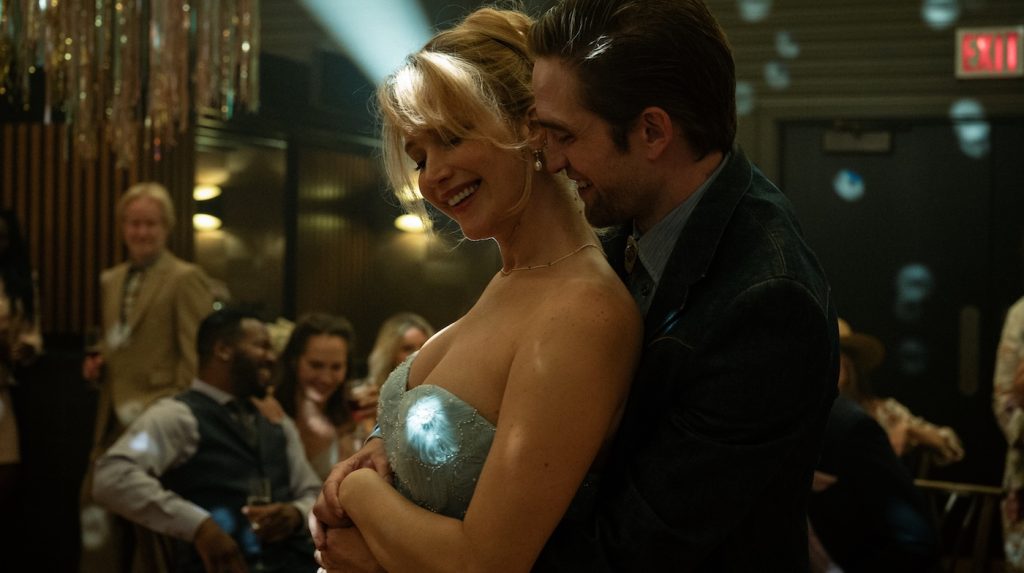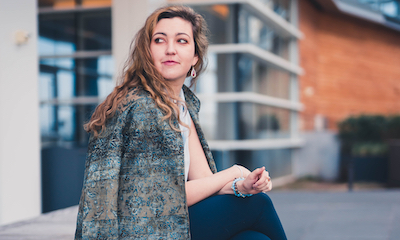Jennifer Lawrence and Robert Pattinson on ‘Die My Love’: Motherhood, Madness, and That Wild Ending
All sorts of spoilers below!
When you look at Robert Pattinson and Jennifer Lawrence’s careers, in many ways, they have had similar paths in Hollywood. They both rose to worldwide fame early in their careers as the leading stars of major franchises (Twilight and The Hunger Games, respectively), and have since spent their 30s taking on more indie roles.
In their latest film, director Lynne Ramsay’s “Die My Love,” we see Pattinson and Lawrence come together for the first time to play new parents, while also becoming real-life parents themselves.
“I think having the perspective of the child, I don’t know if I would have really had that before becoming a mother,” Lawrence explains of how motherhood has helped her in this role.
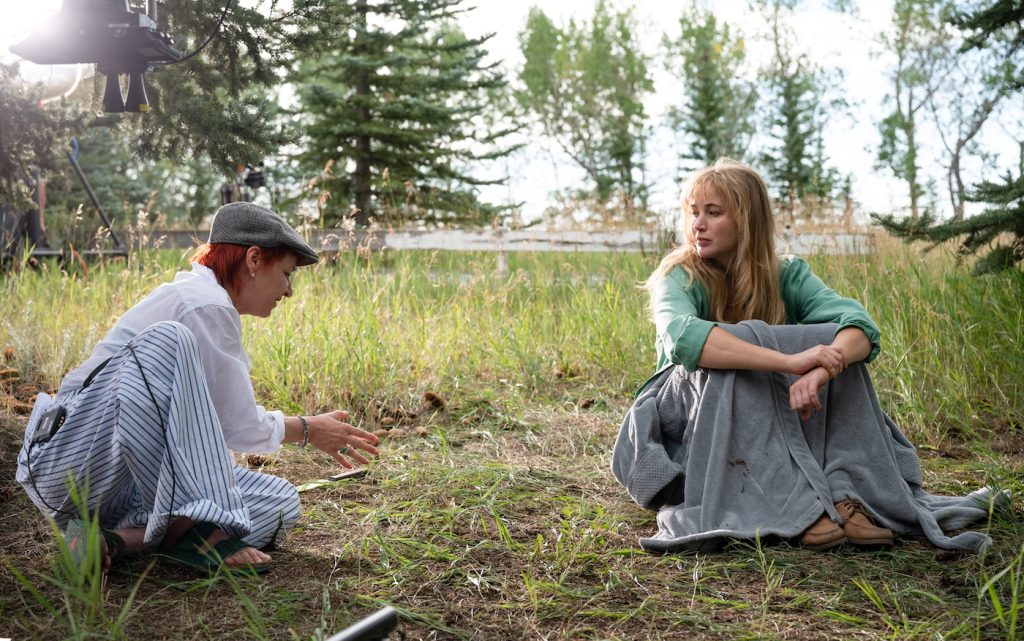
Lawrence has been portraying motherly figures onscreen since the beginning of her career — the elder sister thrust into adult responsibilities in Winter’s Bone and The Hunger Games, a struggling single mother in Joy, and a metaphorical Mother Nature in Darren Aronofsky’s psychological horror film mother!. But Die My Love is the first time we see Lawrence playing an onscreen mother since becoming a mother herself.
Ramsay’s film is a heartbreaking exploration of the mental toll of isolation, motherhood, and the struggle to claim one’s identity. In Lawrence’s hands, it’s a tour de force of primal, almost mythical power. It is the tale of Jackson (Pattinson) and Grace (Lawrence), a young couple who move to rural Montana to live in the house of Jackson’s recently deceased uncle and welcome a baby shortly after. To say the film is simply a commentary on post-partum depression is to reduce it to a single theme when it’s a film bubbling with ideas and harnessed by two sensational performances. Die My Love explores numerous themes, but is primarily about the deterioration of a relationship when one party struggles to claim an identity outside of their assigned role.
“She doesn’t know anybody, she doesn’t have a community,” Lawrence says. “She’s a new mom, and I think she feels like a trapped animal.”
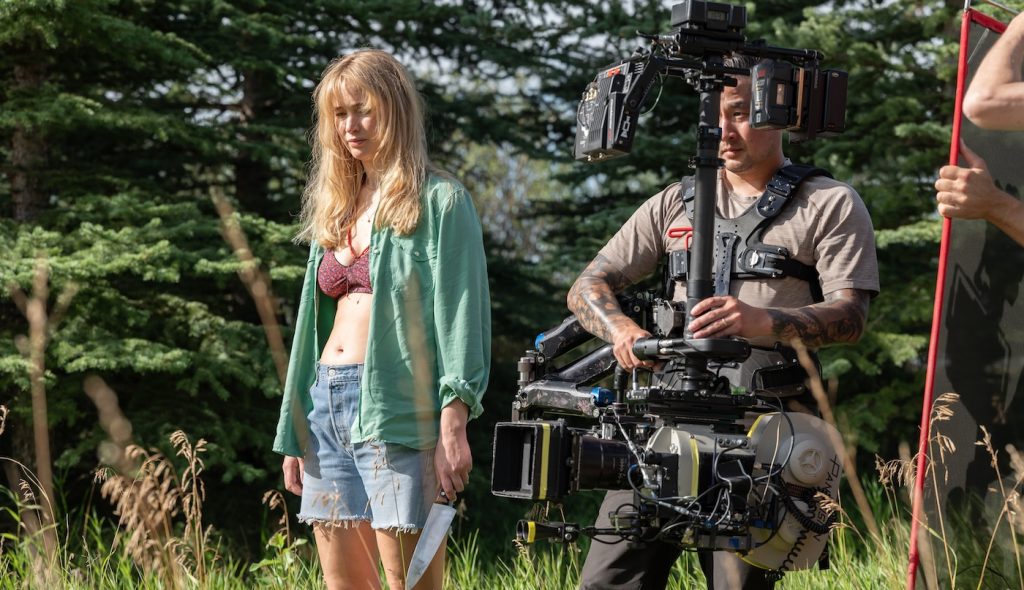
Grace becomes increasingly erratic, bizarre, and paranoid. At times, she is jealous of her own baby, frequently endangering him, while also simultaneously feeling a frantic maternal instinct to protect him.
“When you become a parent, you’re so aware of the baby’s experience,” Lawrence explains. “And how everything is affecting their nervous system. So I think having that knowledge of how much a baby is looking to you for that information – being able to flip that and use it for the opposite was heartbreaking, but fulfilling to me.”
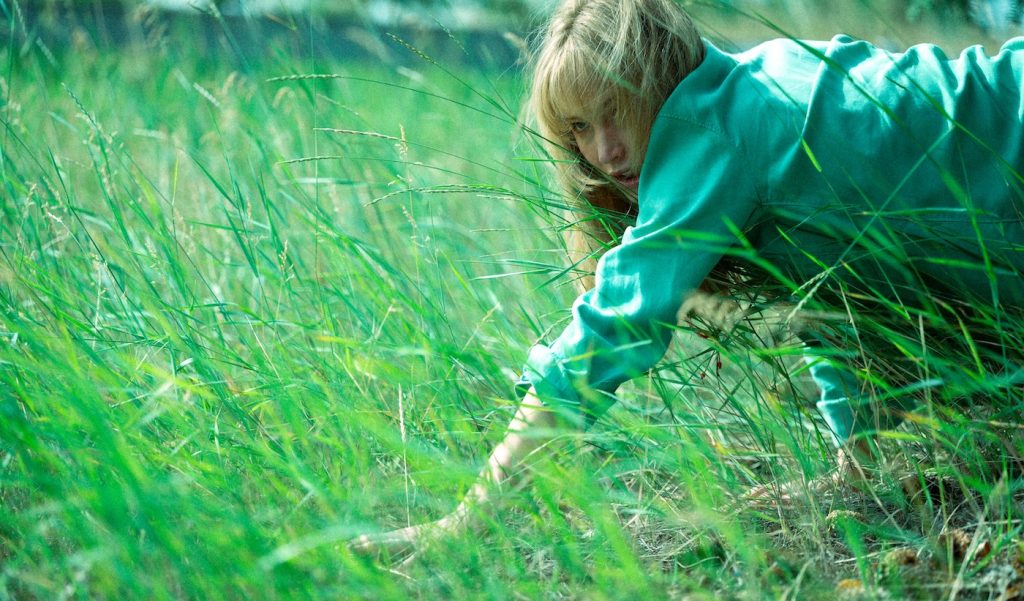
As Grace descends further into madness throughout the film, Jackson’s efforts to help her become more desperate.
“They’re so on two parallel planes,” Pattinson explains of his character’s thought process. “He’s been so enraged by her for so long, and you think, ‘Okay, this has crossed the line. I want to unleash my rage on you.’ And then…it’s like, you don’t even know what you’re even doing.”
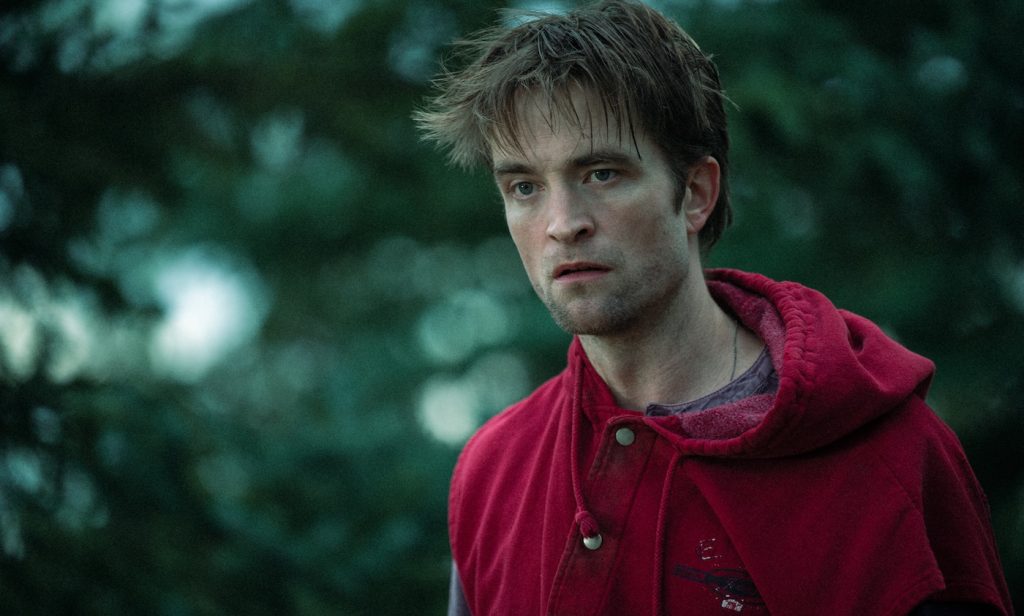
No one can portray an unraveling, psychotic breakdown like Jennifer Lawrence. She plays the role so well that, as a viewer, you are just as confused as her character at discerning what is and isn’t real.
“Everything to Grace was very real, so to me, everything was real,” Lawrence says. “I don’t remember consciously making that choice, but I do remember seeing the movie and being like, ‘Oh, a lot of it is up for interpretation.’”
As her character begins to lose sight of reality, we watch Pattinson’s character’s feeble and futile attempts to help her.
“The cycle kind of keeps renewing, where you’re like, I love you, I want to help you,” Pattinson explains. “You’re not doing something maliciously. So, it’s just, like, horrendous. You’re trapped.”
Spoilers ahoy!
As Grace continues to spiral, we watch as Jackson is at a total loss for how to help. The movie ends with a poetic finality — Grace succumbs to the fire within (literally), finally freeing herself from the mental and physical confines of the house she felt trapped in, but in doing so, seemingly ends her own life. Jackson is left to watch helplessly as his wife walks away from the life he worked to build.
“When I was filming the movie, I was pregnant, and so I think I couldn’t see it any other way,” Lawrence says of the film’s ending. “I saw the fire as kind of like a rebirth and a cleanse, and that the two of them found their way back to each other. After I had my baby, I was like, she kills herself.”
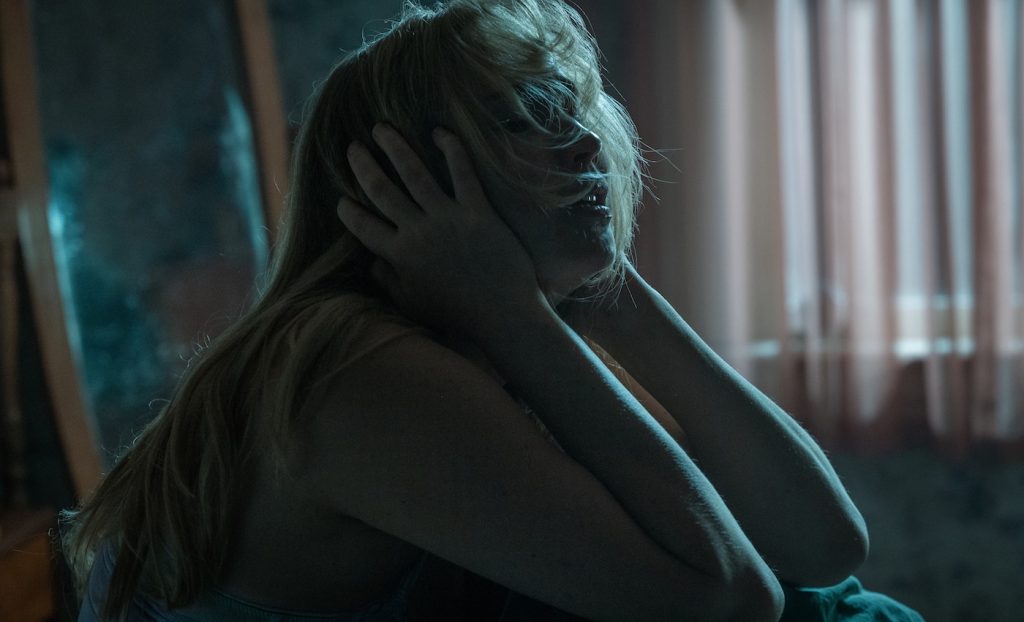
Pattinson says he, too, originally thought Lawrence’s character met a fatal end.
“Or, [that] she’s gone off and… she’s gone off with somebody else,” Pattinson adds. “When he paints the house that color, (“That color!” Lawrence exclaims), it’s like, look what I did. I’ve got this dog, and look how much better my life is.”
The beauty of director Lynne Ramsay’s work is that there is no right or wrong answer. Maybe in an alternate universe, Grace and Jackson find their happy ending.
